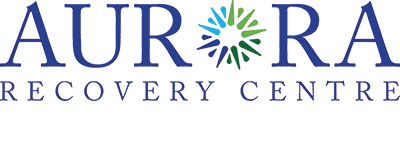When you hear the words ‘drug abuse’ or ‘drug addiction,’ you likely think of illicit recreational drugs like cocaine or heroin. Nevertheless, addiction is much more common with prescription medications.
Prescription drug abuse is the use of a prescription medication in a way not intended by the prescribing doctor. It is particularly common with drugs that flood your brain’s reward system with dopamine. That’s because dopamine results in a pleasurable ‘high’ that can motivate you to take the drug again and again.
You may even become dependent on the drug to feel ‘good’ or ‘normal,’ and over time, you can develop a tolerance to the drug. Tolerance means you must take larger doses to achieve the same results – even when it’s causing you harm.
According to the Canadian Centre on Substance Use and Addiction (CCSA), the most commonly prescribed medications that can lead to problematic use are:
• Opioids, which can help treat pain
• Sedatives, which can help relieve anxiety and help with sleep problems
• Stimulants, which can help treat attention deficit hyperactivity disorder (ADHD)
Improper use of prescription medications can cause serious health effects, from developing a substance use disorder to overdose and even death, Health Canadawarns. Those risks increase when medications are taken at higher doses than prescribed, taken in a different way or for different reasons than they were prescribed, and/or used with alcohol or other prescription, over the counter or illegal drugs.
The negative effects of abusing drugs – even those prescribed to treat a medical disease or condition – are many, Health Canada reports. Consider your mental health, for example. Substance use can trigger mood, anxiety or depression disorders and can also increase the risk of developing a serious mental health illness like psychosis or schizophrenia.
If you’re a student, substance abuse can impact your ability to study, concentrate in class and keep up with assignments. If you work, it can impact your ability to focus, which could lead to you losing your job, hurting yourself and/or endangering others. Substance abuse can also negatively affect relationships, finances, mood and many other aspects of your life.
If you’re struggling with prescription drugs, know you’re not alone. According to the Canadian Tobacco, Alcohol and Drugs survey, about 6.5 million Canadians reported using psychoactive prescription drugs in 2017, with a higher prevalence of use reported among females.
Prescription drug abuse can affect all age groups. Canadian youth have higher rates of psychoactive prescription drug use compared to adults aged 25 years or older, reports the CCSA. Because their brains are still developing, young people are also more likely to experience harms like dependence, addiction, illness, overdose and death from the use of prescription drugs. That’s not all. They’re also at greater risk of developing later drug dependence and possible use of riskier drugs.
Canadian adults aged 65 years and older, meanwhile, have higher rates of psychoactive prescription drug use compared to those aged 15 years and over, according to the CCSA. That increases their risk of experiencing related harms, including misuse, addiction, falls, cognitive impairment and medication interactions.
Fortunately, according to Health Canada, recovery from addiction is possible, though getting help can mean different things for different people and can take different forms. It’s important for people to know that successful treatment isn’t determined by immediate, long-term abstinence, it adds. Rather, treatment is successful when the person understands their addiction and seeks help if re-use occurs.
Aurora Recovery Centre understands the challenges of prescription drug addiction and can help you develop a personalized treatment program that will help you better understand your addiction and adopt healthier behaviours. Contact us today if you or a loved one requires treatment for prescription drug addiction and look forward to a happier, safer tomorrow.
